Have you heard of husk? Probably not! Or maybe you are one of the few people who know what this is? In both cases, we will still find something you are not yet familiar with, so the following article is for you.
Husk is a great way to regain your good shape and get rid of extra pounds. This is a white plantain of Indian origin, known in medicine since ancient times. The plant can solve the problem of overweight without imposing your restriction on a number of products.
Husk contains valuable substances for the body, such as fiber and soluble fiber, which keep it full for a long time and eliminate the feeling of hunger.
As we know, fiber does a great job of cleansing the body of toxic deposits, lowering cholesterol and blood sugar. The plant is recommended for the treatment of both constipation and diarrhea. Husk also has anti-inflammatory action, which is why it is used for deep wounds, the recovery of which would take a long time.
Husk's Health Benefits
1. Prevents heart problems - because of its fiber content, which reduces the risk of heart disease.
2. Maintains blood sugar levels in the body - again because of the fiber and their ability to regulate blood sugar.
3. Significantly reduces the risk of stroke.
4. Stimulates the rapid loss of weight - fiber promotes rapid and long-term satiation of the body.
5. Protects against inflammation of the intestines, as well as from any discomfort and irritation associated with them. It has a calming and soothing effect.
6. Takes care of the skin - by keeping it young, beautiful, without acne, blemishes and other imperfections, as it stimulates the release of harmful substances through the body, not through the skin.
7. Reduces the risk of kidney stones and gallstones - due to the control it has over blood sugar.
8. Prevents hemorrhoids.
Here's more about the benefits of husk:
Husk flakes can pass through your digestive system without being completely broken down or absorbed by the body. Instead, these bran absorb water and turn into a viscous compound, which has benefits in case of constipation, diarrhea, in case of regulation of glycemia, blood pressure, cholesterol and weight loss.
Husk flakes are used as a laxative. They work by increasing the size of the stool and therefore helping to relieve constipation.

Over time, it has been observed that husk bran relieves diarrhea. One study found that husk significantly reduced diarrhea in 30 cancer patients receiving radiation therapy. So this bran helps to normalize intestinal transit, if you have problems such as constipation or diarrhea.
Fiber supplements have been shown to control the glycemic response to food and reduce insulin levels and the amount of glucose in the blood (blood sugar). This is especially true for water-soluble fibers such as husk.
In fact, husk works better than other fibers. This is because husk fibers form a kind of gel and can slow down the digestion of food, which helps regulate blood sugar.
In one study, 56 men with diabetes received 5.1 grams of husk twice a day for 8 weeks. This lowers the blood sugar of diabetics by up to 11%.
In another study, people with type 2 diabetes received a higher daily dose of fiber than husk (5 grams consumed 3 times a day) for 6 consecutive weeks. This dose resulted in low blood sugar during the first two weeks of the study.
Husk products have been linked to colon regulation and laxative action, but also to the prevention and treatment of colon diseases such as diverticulitis, irritable bowel syndrome or inflammatory bowel disease. Husk is also believed to help with weight loss and detoxification and is common in diets of this type.
Husk impact
Constipation
Husk favors the movements and the gel and as a result of the combination with water, it has a softening and lubricating role, favoring the elimination of feces. A study published in the American Journal of Gastroenterology, with a group of 149 patients with constipation, shows that the consumption of 15-30 grams of husk per day, prepared according to the recommendations, reduces constipation and regulates intestinal transit in 85% of acute cases.
For diarrhea
On the other hand, due to the increased water retention capacity, husk can slow down the final gastric process and intestinal transit, which is useful in case of fecal incontinence caused by diarrhea/liquid stools.
For hemorrhoids
According to a clinical study in a sample of 50 people with hemorrhoidal bleeding, taking 11, 6 grams of husk per day for 40 days resulted in a reduction in bleeding compared with placebo (vitamin B), where no improvement was observed. This way, after consuming husk, there is a reduction in bleeding and inflamed hemorrhoids.
The study notes that the duration of treatment should be more than one month - after consumption for 30 days no changes were observed, while after 40 days of treatment the improvements are significant.
Husk consumption may be helpful in case of irritable bowel disease, inflamed colon or ulcerative colitis.
Supplementing your daily diet with 10 grams of husk is effective in relieving colitis.
Obesity

Husk is often used in diets for weight loss. The action is presented by reducing appetite and speeding up the digestive processes, giving the feeling of satiety and reducing the amount of food consumed. Along with adopting a healthy lifestyle and a balanced diet, it can help with weight loss. If husk fiber is used for weight loss, it should be consumed at least 30 minutes before meals.
The mechanism by which husk consumption reduces appetite involves altering the glycemic response and regulating carbohydrate interactions under the action of intestinal peptides. These are the main biochemicals, that control the feeling of satiety.
For diabetes
A study of a group of 34 men with type 2 diabetes and hypercholesterolemia showed a reduction in total cholesterol (reduced by 8.9%) and LDL-cholesterol (reduced by 1%) after consuming 5.1 grams of husk twice daily for 8 weeks compared with placebo. In contrast, no significant changes in blood glucose were observed.
How should husk be taken?
The Indian husk plant is taken once or twice a day, in a liquid, well-dissolved state. The second time, which will probably be in the evening, should be taken at least an hour before bedtime.
It is important to consume plenty of water while supplying your body with it. Husk is safe for pregnant women, children (the intake for them is 1 teaspoon) and before that you must consult a doctor and for people with gluten intolerance.
Side effects when eating husk
If husk is not consumed properly, it can lead to some side effects. People with intestinal obstruction, difficulty swallowing, esophageal disorders or other obstructions in the digestive tract are forbidden to consume husk.
Inhalation of husk dust can cause respiratory problems.
Husk can cause irritation or allergic reactions in the respiratory system. Some people may have such allergies, and they are prohibited from consuming these products.
Excessive and prolonged consumption of husk can cause:
- severe constipation;
- rectal bleeding;
- intestinal problems;
- problems with the colon;
- vomiting;
- abdominal cramps;
- diarrhea;
- nausea;
- dehydration.
Conclusions
During the consumption of husk it is recommended to consume at least 2 liters of water per day.
Consumption should be associated with a balanced and varied diet.
The use of the product is not recommended in case of allergy to any of the compounds.
Do not exceed the recommended daily dose.
Husk is not recommended for use by children.
Husk should be stored in a cool, dry place and protected from sunlight.
If husk is used for 7 days to treat constipation and no improvement is observed, specialized medical advice is recommended.
Husk should not be intaken with other laxatives.
It should not be consumed by people with intestinal obstruction!
Can pregnant or lactating women consume husk?
Husk products can be consumed by pregnant or lactating women to treat constipation, but in small amounts and preferably when adviced by a doctor. They are not absorbed, therefore they do not affect the fetus or breast milk.
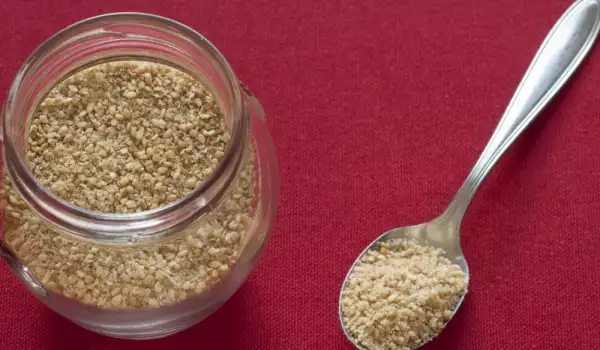
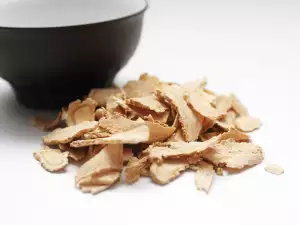





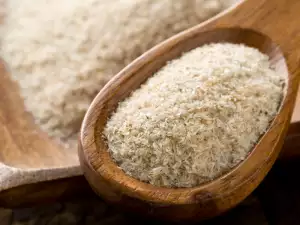
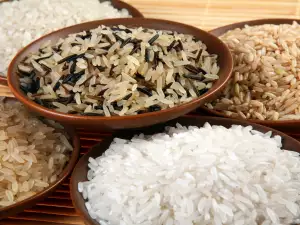


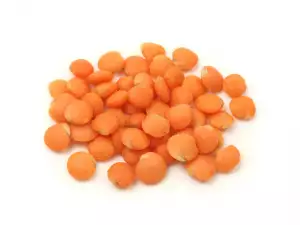
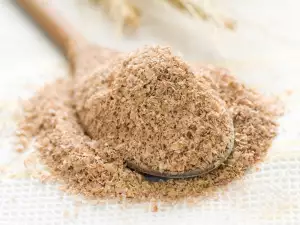


Comments